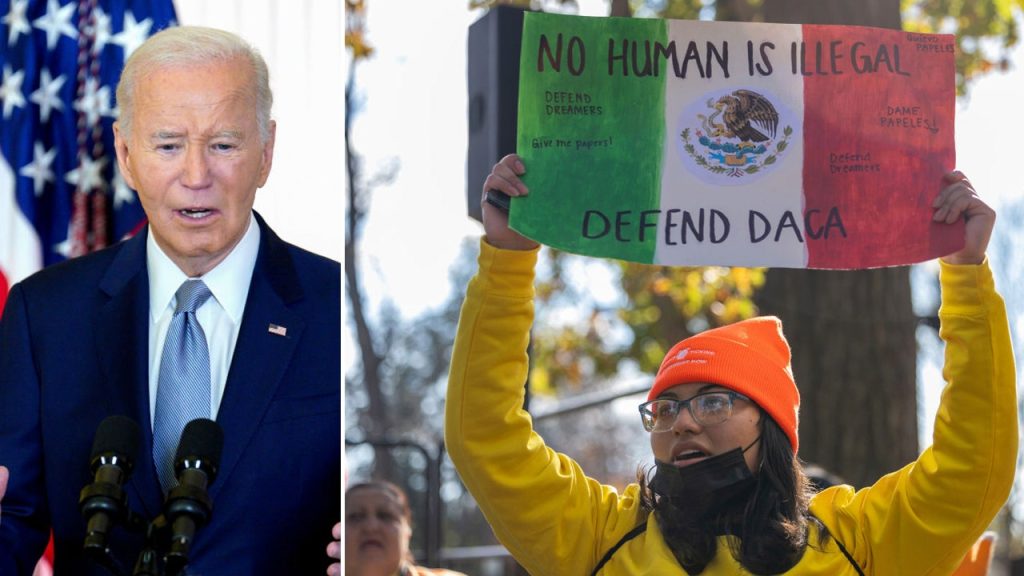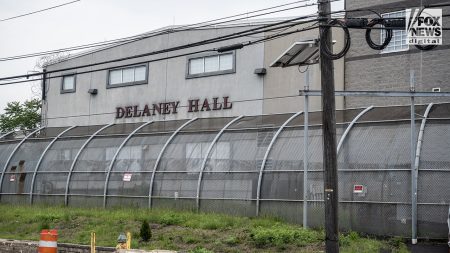The waning days of the Biden administration have ignited a fervent push by Senate Democrats urging the president to fortify protections for vulnerable immigrant populations before the incoming Trump administration assumes power. This plea centers around two key programs: Temporary Protected Status (TPS) and Deferred Action for Childhood Arrivals (DACA). TPS offers a haven from deportation and work authorization to individuals from nations deemed unsafe for return, while DACA shields eligible undocumented immigrants brought to the U.S. as children. Senators Catherine Cortez Masto, Ben Ray Lujan, and Alex Padilla, joined by immigration advocates, have amplified their calls for Biden to take decisive action, underscoring the precarious situation facing these communities.
The looming Trump administration presents a tangible threat to these protections. During his previous term, Trump sought to dismantle TPS for numerous countries, facing legal challenges and criticism for his hardline stance. Republican lawmakers have consistently accused the Biden administration of exploiting TPS, advocating for stricter congressional oversight of the program. Newly elected Representative Jim Banks has introduced legislation that would curtail TPS designations, requiring congressional approval for 12-month terms and subsequent extensions. While Trump has indicated a willingness to negotiate with Democrats on DACA’s future, his past actions and campaign rhetoric raise doubts about his commitment.
Trump’s campaign pronouncements centered on a promise of mass deportations, creating an atmosphere of anxiety among immigrant communities. Democrats, wary of a potential resurgence of harsh immigration enforcement, are pressing Biden to preemptively secure protections. Senator Cortez Masto emphasized the president’s legal authority to provide stability for these long-term immigrant communities, highlighting the looming threat posed by the incoming administration’s anticipated “chaotic immigration policies.” She also expressed skepticism about Trump’s overtures on DACA, recalling his rejection of a bipartisan bill aiming to protect Dreamers during his first term.
Senator Padilla underscored the potential for Biden to solidify his legacy on both economic and humanitarian fronts by safeguarding long-term immigrants and bolstering the nation’s economy. This appeal to Biden’s legacy underscores the gravity of the situation and the potential long-term impact of his decision. These calls for action follow a letter from Senate Democrats, led by Senator Dick Durbin, expressing profound concern about the impending threat to immigrant communities under the Trump administration. The letter urged Biden to act decisively before the inauguration to cement the progress made in protecting immigrant families during his tenure.
The Democrats’ plea centers on the urgency of the situation, emphasizing the rapidly closing window of opportunity for Biden to implement lasting protections. They argue that the incoming administration’s anticipated aggressive immigration policies necessitate swift action. The absence of any indication from the Biden administration regarding impending action on DACA or TPS adds to the mounting pressure. Traditionally, TPS extensions and redesignations fall under the purview of the Department of Homeland Security, and the White House has remained silent on the matter.
The fate of DACA remains entangled in ongoing legal battles. The Trump administration’s unsuccessful attempts to terminate the program were thwarted by the Supreme Court, but the policy’s legality is still under scrutiny in the U.S. Court of Appeals for the Fifth Circuit. Previous attempts at bipartisan compromise, such as Trump’s 2019 proposal offering three years of DACA protection in exchange for border wall funding, have faltered. Democrats rejected this offer, denouncing it as “hostage taking.” The confluence of these factors – the impending change in administration, the legal challenges to DACA, and the lack of clear communication from the Biden administration – has created a climate of uncertainty and urgency for immigrant communities and their advocates.










